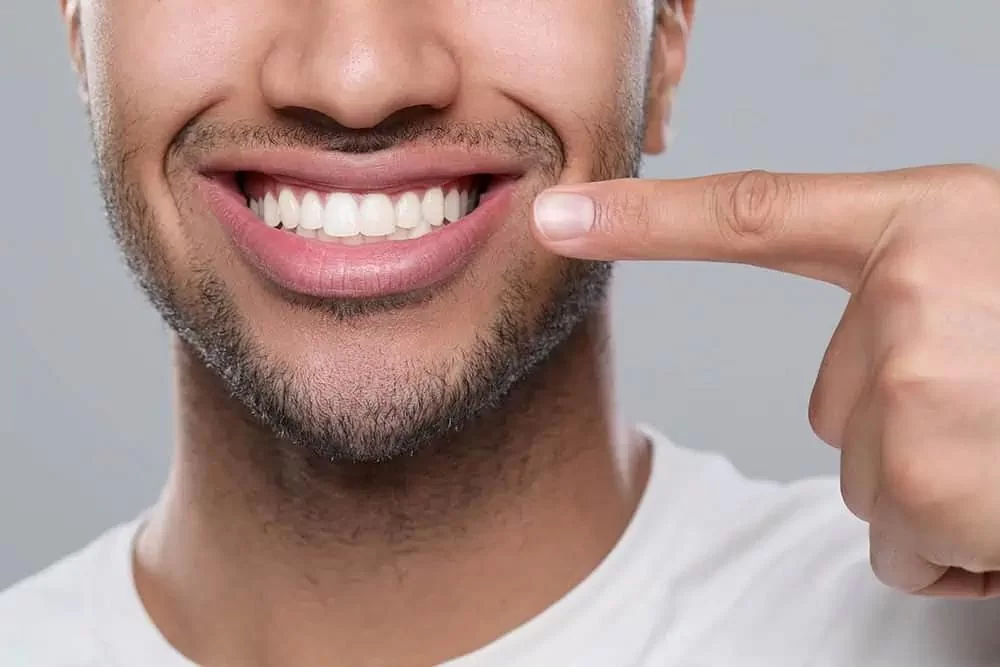
Understanding Gum Recession: What You Need to Know
When I first heard the term "gum recession," I didn’t realize how serious it could be. I was in my late twenties, still brushing my teeth twice a day, and visiting the dentist regularly. But during one of those visits, my dentist pointed out that my gums were receding, and I felt a wave of panic. At that moment, I realized that gum recession is more than just an aesthetic issue – it's a health concern that can lead to tooth sensitivity, decay, and even tooth loss if not addressed promptly.
Gum recession occurs when the margin of your gum tissue around your teeth wears away or pulls back, exposing more of the tooth or its root. While this process is gradual and often goes unnoticed, it can have serious consequences. The exposed areas are more vulnerable to plaque buildup, which can lead to cavities and further gum problems. If you're like me, you might be wondering: how can I protect my gums and prevent further recession?
1. Practice Gentle Brushing Techniques
One of the first things I learned about gum recession was that aggressive brushing can contribute to it. When I used a hard-bristled toothbrush and brushed too vigorously, I was unknowingly wearing away the delicate gum tissue. Now, I use a soft-bristled toothbrush and make sure to brush in gentle, circular motions rather than scrubbing back and forth. This helps preserve my gums and reduces the risk of further irritation or damage.
It’s also important to avoid pressing too hard while brushing. Brushing too hard can damage not only your gums but also your enamel, which is the protective layer on your teeth. I switched to a toothbrush with soft bristles and even considered an electric toothbrush with a pressure sensor to help me keep my brushing pressure in check. I noticed that switching to a softer brush helped reduce my gum sensitivity, and my dentist confirmed that my gums were in better shape.
2. Floss Regularly, but Gently
Flossing is another habit I didn’t take as seriously as I should have. Initially, I would skip flossing or rush through it, thinking that brushing was enough. But flossing helps remove food particles and plaque from between your teeth and along the gumline, where a toothbrush can't reach. This is crucial for preventing gum recession and gum disease.
However, I learned that the way you floss matters. It’s important to be gentle when using dental floss. Using a saw-like motion or snapping the floss between teeth can cause irritation or even tear the gums. Instead, I now carefully slide the floss between my teeth in a gentle up-and-down motion, ensuring that I don’t damage my gums while cleaning between them.
3. Pay Attention to Your Diet
I’ve realized that my diet plays a huge role in gum health. When I eat a lot of sugary foods and beverages, I’m giving harmful bacteria in my mouth the fuel they need to thrive, which increases the likelihood of plaque buildup. Plaque, in turn, can lead to gum disease and recession. To protect my gums, I make sure to eat a balanced diet rich in vitamins and minerals.
Vitamin C, in particular, is essential for maintaining healthy gums. I’ve added more citrus fruits, strawberries, and leafy greens to my diet to boost my intake of vitamin C. Additionally, calcium is vital for healthy teeth and bones, so I include dairy products like yogurt and cheese, as well as non-dairy sources like almonds and leafy greens. I also make a point to drink plenty of water to help wash away food particles and keep my mouth hydrated.
4. Avoid Smoking and Tobacco Use
It wasn’t until I quit smoking that I truly understood the link between tobacco and gum recession. Smoking reduces blood flow to the gums, making it harder for them to heal and increasing the risk of gum disease. I noticed that after quitting smoking, my gums seemed to look healthier, and I didn’t experience as much sensitivity or discomfort.
Using tobacco, whether smoking or chewing, damages gum tissue and can lead to a range of dental problems, including gum recession. If you’re someone who uses tobacco, quitting is one of the best decisions you can make for your overall health and your gums.
5. Visit Your Dentist Regularly
Perhaps the most important piece of advice I can offer is to visit your dentist regularly for checkups and cleanings. Even if you’re diligent about brushing and flossing at home, it’s easy for plaque and tartar to build up in areas that are hard to reach. Professional cleanings help remove this buildup, preventing gum disease and recession.
During my last visit, my dentist was able to spot early signs of gum recession before they became a bigger issue. Early detection is key to preventing further damage, so don’t skip those routine dental appointments. Your dentist can also give you personalized advice on how to care for your gums based on your unique oral health needs.
Conclusion: Take Control of Your Gum Health
Protecting your gums from recession is an ongoing process, and the key to success is consistency. By adopting gentle brushing and flossing habits, eating a nutrient-rich diet, quitting tobacco use, and visiting your dentist regularly, you can significantly reduce your risk of gum recession and keep your gums healthy for years to come. I’ve seen the positive effects of these habits on my own gums, and I’m confident you will too. Remember, your gums play a crucial role in your overall oral health, so take the necessary steps to care for them today!







 Babylon Dental Care4.0 (388 review)
Babylon Dental Care4.0 (388 review) Ocean Dental4.0 (141 review)
Ocean Dental4.0 (141 review) Weatherhill Dental Associates4.0 (104 review)
Weatherhill Dental Associates4.0 (104 review) Dr. Backiel and Associates4.0 (213 review)
Dr. Backiel and Associates4.0 (213 review) Little Big Smiles Pediatric Dentistry of Fort Myers5.0 (130 review)
Little Big Smiles Pediatric Dentistry of Fort Myers5.0 (130 review) Dr. Gary Newell, DDS5.0 (114 review)
Dr. Gary Newell, DDS5.0 (114 review) The Importance of Oral Health Education During Pregnancy for a Healthy Pregnancy
The Importance of Oral Health Education During Pregnancy for a Healthy Pregnancy Best Tips for Brushing Your Teeth Properly for Healthy Gums: Essential Techniques for Oral Health
Best Tips for Brushing Your Teeth Properly for Healthy Gums: Essential Techniques for Oral Health Why Skipping Dental Checkups Can Lead to Bigger Oral Health Problems
Why Skipping Dental Checkups Can Lead to Bigger Oral Health Problems Advantages of Porcelain Dental Restorations
Advantages of Porcelain Dental Restorations How Can Diabetes Cause Tooth and Gum Problems? Preventing and Managing Oral Health Issues
How Can Diabetes Cause Tooth and Gum Problems? Preventing and Managing Oral Health Issues Healthy Habits for Promoting Good Oral Health and Hygiene: Tips for a Healthy Smile
Healthy Habits for Promoting Good Oral Health and Hygiene: Tips for a Healthy Smile